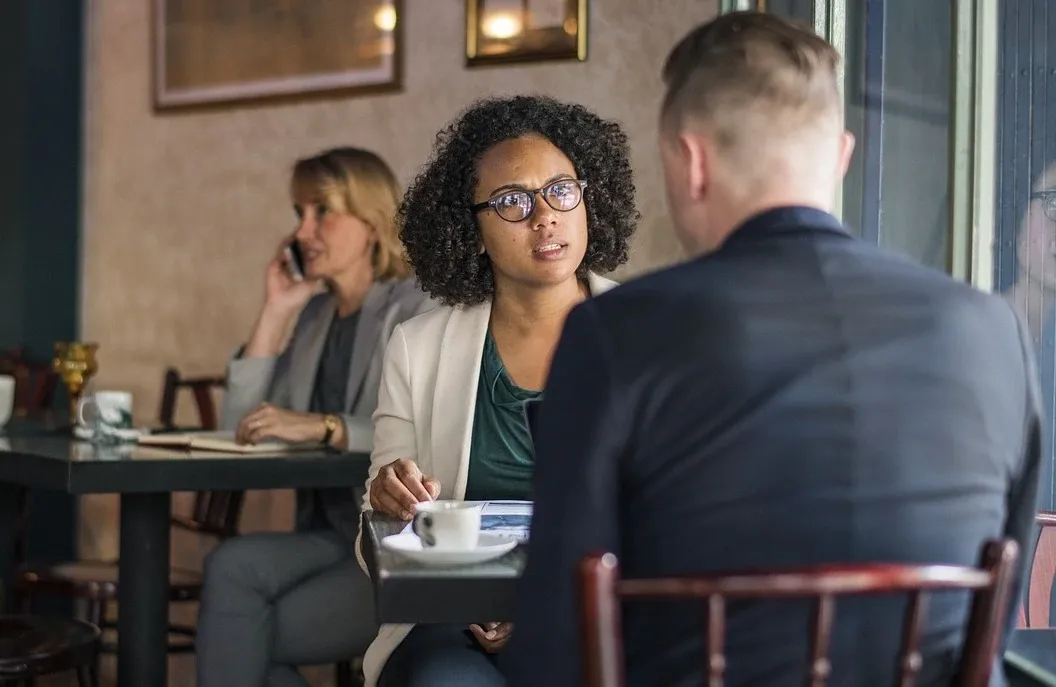Every restaurant has to deal with rude customers. These customers may be demanding, they may change their orders, they may belittle servers, or they may continue to keep making changes to their food. "It's too hot." "It's too cold." "I asked to have no lettuce in my salad."
Rude customers are often the clients from hell, and handling them requires a different approach based on each situation. Today, we're going to learn how to deal with these patrons, and why some guests have a reason for being the way that they are.
Guests with Bad Experiences or Food Allergies
The service industry is one of the most difficult industries in the world to work in. You have to deal with customers on a daily basis that can ruin your entire day. There's no shortage of rude customer stories, but there may be a reason behind the person's actions.
Some patrons may have food allergies, often severe food allergies.
I have been to restaurants that somehow leave key ingredients off of their menu. When I receive the entrГ©e, I have a choice whether to eat it or not. Customers who have food allergies or serious aversions to certain foods are not trying to be rude or discourteous. These individuals are trying to get the food prepared properly so that they can eat it.
Guests may also be giving a restaurant a second try, and if a server keeps getting their dish wrong, is inattentive or forgets key items, the customer may be angry at the situation rather than you personally.
But they can all be forgiven.
There are other customers that can be:
- Abusive
- Repulsive
- Threatening
Dealing with these people will take an entirely different approach.

How to Deal with Rude or Threatening Customers
Rude patrons may be having an off day, and you don't want to lose a potential long-term customer because they had a rough day at work. You have quite a few options when dealing with customers based on the severity of their behavior.
A traditional restaurant will:
Remain accommodating. If a customer orders food and sends it back to the kitchen, they have every right to do so if the food is cooked improperly. You have to deal with these customers in a professional manner, and you should try to be as accommodating as possible. There is always a breaking point where being accommodating is not working, and you can ask the customer if they would like to switch servers or have their money returned.
Fix the problem. Sometimes, the problem isn't the result of the customer's behavior, but of the server or cook. If a lot of complaints are made or the same issue keeps popping up, the restaurant's owner should step in and try to determine what the root cause of the problem is. Perhaps the cook or server needs to be retrained.
Remain calm and polite. "Kill them with kindness." This phrase is the cornerstone to the industry, and it is one that works most of the time. Servers and wait staff should try to be as polite and nice as possible. If the customer is not being abusive or degrading, you'll only need to deal with their grumbling for a little longer.
Offer some form of compensation. I was at a local restaurant recently, and the server continued to forget items. Finally, the server forgot to bring out a food item I ordered, and he was very apologetic about the entire issue. He went as far as giving us the item for free because of the mistakes that kept occurring that day. Sometimes offering up a free item can help ease tensions and retain a customer.
Apologize. When something is the restaurant's fault, make sure to apologize. An apology from the cook or owner is often one of the best ways to help turn an unhappy guest into a happy one.
Follow up. Once the situation seems to be diffused, don't forget to follow up with the guests. You can ask if the customer needs a refill on their drinks, or if everything is up to their satisfaction. An owner who does the follow up will have a much better impact than a server.
But this is what you should be doing with all of the rude customers in your restaurant.

Right to Refuse Service
Legally, you do not have the right to refuse someone service based on their:
- Race
- Color
- Religion
- Gender
But you do have a right to refuse service to rude or abusive customers. A few examples of this may be a customer who has been aggressive with the staff. The customer may try and grab a waitress, or the customer may use inappropriate language at the staff, throw utensils or cause other distractions.
When this occurs, you can ask the person to leave.
A general rule of thumb is that you can refuse service under the following conditions:
- Patrons are causing trouble
- Patrons may cause overcapacity issues
- Patrons step through the door when the kitchen closes
- Patrons are being aggressive or abusive
You can even deny service to large parties that have guests that are not eating. While not advised, if the number of non-eating guests is large, it can hurt the restaurant's profits.
A customer's presence that has an impact on the following can also be removed:
- Staff / guest safety
- Staff / guest well-being
The welfare of all restaurant guests is in the hands of the owner, and it's the restaurants duty to keep guests as safe as possible.
But right to refuse can never be on the basis of discrimination. If you discriminate against a customer, this can lead to a very hefty lawsuit. You will also have to deal with a smeared reputation and a potential loss of customers due to poor publicity.

Escalate the Problem
Servers often take the brunt of the abuse, but they can rely on the help of management and owners to resolve the issue. Servers should be taught that it's acceptable to escalate the issue to managers, supervisors or the owner when a client is irate.
It's acceptable to provide the customer with a warning, too. If a customer continues verbally abusing a staff member, it's acceptable to warn them that another outburst will result in their removal from the restaurant.
In the ideal situation, you can help the customer relax and get on with the night. But there may be some customers that push the issue further and may cause the threat of physical harm to guests.
When this occurs, it's time to call the police or security to come and escort the individual out of the restaurant.
It may be time for the owner or manager to also go to each table and apologize for the issue. It never hurts to be sympathetic and help retain customers by apologizing for the interruption to their meals.
But when a customer is a customer from hell, it's often best to apologize and hope that the customer no longer returns.
